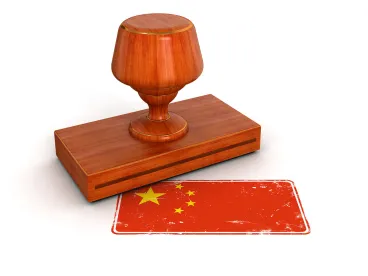On June 27, 2022, the State Administration for Market Regulation released the Provisions on Prohibiting the Abuse of Intellectual Property Rights to Exclude and Restrict Competition (Draft for Comments) (禁止滥用知识产权排除、限制竞争行为规定(征求意见稿)). The Draft, which is meant to implement the Anti-Monopoly Law (the most recent version of which comes into force August 1, 2022), defines markets, adds a provision on using intellectual property to form a monopoly with others, strengthens legal liability with fines up to 10% of last year’s sales, and clarifies regulations on abuse of dominant market position in standard-essential patent licensing, etc. Of particular concern to foreign enterprises is Article 7, which seems to implement a compulsory licensing regime.

Article 4 defines markets as follows,
In anti-monopoly enforcement work involving intellectual property licensing, the relevant commodity market can be the technology market, the product market with specific intellectual property rights, or the innovation (R&D) market.
The related technology market refers to the market composed of a group or a class of technologies with a relatively close substitution relationship. The relevant innovation (R&D) market refers to the market formed by the competition among operators for the research and development of new technologies or new products in the future.
Article 5 states:
Market participants shall not reach monopoly agreements prohibited by Article 17 and Paragraph 1 of Article 18 of the Anti-Monopoly Law by exercising intellectual property rights.
Market participants shall not use the method of exercising intellectual property rights to organize other operators to reach a monopoly agreement or provide substantial assistance for other participants to reach a monopoly agreement.
Article 6 states,
To determine that an market participant in the field of intellectual property has a dominant market position, factors such as the substitutability of intellectual property, the dependence of the downstream market on the commodities provided by the use of intellectual property, and the ability of the counterparty to check and balance the operator can be considered.
Article 7 defines abuse,
A market participant with a dominant market position shall not, without justifiable reasons, refuse to license other market participants to use the intellectual property rights under reasonable conditions, so as to exclude or restrict competition when its intellectual property constitutes necessary facilities for production and business activities.
The following factors shall be considered when determining the conduct in the preceding paragraph:
(1) The intellectual property right cannot be reasonably substituted in the relevant market and is necessary for other operators to participate in the competition in the relevant market;
(2) Refusal to license the intellectual property will adversely affect competition or innovation in the relevant market, and harm the interests of consumers or the public;
(3) Licensing the intellectual property will not cause unreasonable damage to the IP owner.
Regarding standard essential patents, Articles 15 and 16 state,
Article 15 In the process of exercising intellectual property rights, market participants shall not use the formulation and implementation of standards to engage in the following acts to exclude or restrict competition:
(1) Without a justifiable reason, it joins forces with a market participants with a competitive relationship to exclude a specific market participants from participating in the formulation of standards, or excludes a specific market participants’s relevant standard technical solutions;
(2) Without justifiable reasons, jointly excluding other specific market participants from implementing relevant standards with a market participant having a competitive relationship;
(3) Agreeing with market participants that have a competitive relationship not to implement other competitive standards;
(4) Other monopoly agreements identified by the State Administration for Market Regulation.
Article 16 A market participants with a dominant market position shall not engage in the following acts in the process of formulating and implementing standards to exclude or restrict competition:
(1) In the process of participating in the formulation of standards, deliberately not disclosing its rights information to the standards-setting organization, or explicitly giving up its rights, but after a certain standard is implemented and requires the patent, the implementer of the standard asserts its patent right;
(2) After its patent becomes a standard essential patent, it violates its promise of fair, reasonable and non-discriminatory licensing, licenses it at an unfairly high price, refuses to license without justifiable reasons, tying commodities, implements differential treatment, or imposes other unreasonable restrictive conditions;
(3) In the process of licensing SEPs, breaching the promise of fair, reasonable and non-discriminatory licensing, and without good faith negotiation procedures, improperly requesting the court or relevant departments to make or issue judgments, rulings or decisions prohibiting the use of relevant intellectual property rights, force the licensee to accept its unfairly high price or other unreasonable restrictions;
(4) Other acts of abusing market dominance as determined by the State Administration for Market Regulation.
Article 21 specifies that punishment can include:
Where a business operator abuses its intellectual property rights to preclude or restrict competition, which constitutes a monopolistic agreement, the Anti-monopoly Law Enforcement Agency shall order it to cease the violation, confiscate its illegal gains, and impose a fine of not less than 1% but not more than 10% of the sales amount in the previous year, or a fine of not more than 5 million RMB if it has no sales amount in the previous year. If the monopoly agreement reached by them has not been implemented, a fine of not more than 3 million RMB may be imposed. Where the legal representative, major person-in-charge or any directly liable person of a business operator is personally liable for concluding a monopolistic agreement, he/she may be fined not more than 1 million RMB.



 />i
/>i

